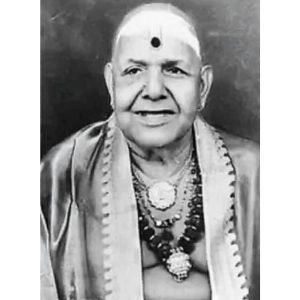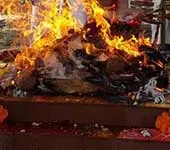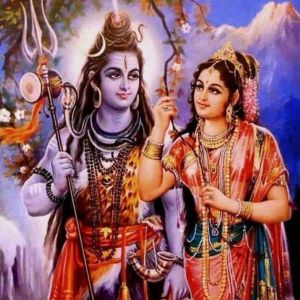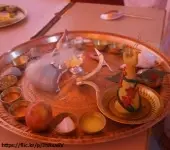Chembai Vaidyanatha Bhagavatar - A Carnatic Maestro's Musical Odyssey

In the rich tapestry of Carnatic music, the name Chembai Vaidyanatha Bhagavatar resonates as a harmonious thread that intricately weaves together a tale of musical brilliance and spiritual devotion. Born on September 1, 1896, in the serene town of Chembai near Palghat, Kerala, Chembai embarked on a musical journey that would not only shape his own illustrious career but also leave an indelible mark on the landscape of Indian classical music. Trained under the guidance of his father, Ananta Bhagavatar, and later Kaliakuti Natesa Sastrigal, Chembai's focus on voice culture and musical excellence set him apart. His early performances, marked by a scintillating vocal style, paved the way for a solo career that propelled him to the pinnacle of fame. Beyond his musical prowess, Chembai's deep-rooted connection with Guruvayurappan added a spiritual dimension to his artistry. This article explores the life, contributions, and enduring legacy of Chembai Vaidyanatha Bhagavatar, a maestro whose resonant voice and musical mastery continue to echo through the corridors of time.
Early Life and Training
Birth and Background
Chembai Vaidyanatha Bhagavatar, born on September 1, 1896, in the quaint town of Chembai near Palghat, Kerala, was destined to become one of the most revered Carnatic vocal musicians of the 20th century. His parents, Ananta Bhagavatar and Parvati Ammal, belonged to a family deeply rooted in classical music for five centuries.
Training in Music
At the tender age of three, young Vaidyanatha embarked on his musical journey under the guidance of his father, Ananta Bhagavatar. Ananta, himself a skilled violinist and singer, received the prestigious title 'Ghana Chakratanam' from a local Maharaja for his mastery of a unique closed-mouth style of singing tanam. The rich musical heritage of the family laid the foundation for Chembai's early immersion in Carnatic music.
In addition to vocal training, Chembai also delved into the intricacies of the violin and flute, beginning in 1912. His father's influence and the family's association with classical music fueled his passion for the art form. His early education in music followed the traditional guru-sishya tradition, setting the stage for a lifelong commitment to the art.
Rise to Fame
Early Performances
Chembai's debut concert, or arangetram, in Ottapalam in 1904 at the age of nine marked the commencement of his public musical journey. The precocious talent displayed during this performance foreshadowed a brilliant future. Subsequent performances in Vaikom and Guruvayur in 1907 garnered attention, laying the groundwork for his future prominence.
In 1909, Chembai spent a significant year under the tutelage of Kaliakudi Natesa Sastry, further honing his musical skills. The accolades he received from Palghat Anantharama Bhagavatar in 1911 further boosted his confidence and propelled him into the Carnatic music scene.
Musical Odyssey
Between 1913 and 1927, Chembai participated in numerous music festivals and sabhas, showcasing his evolving artistry. The Madras Music Academy and the Jagannatha Bhakta Sabha were among the platforms where he left an indelible mark. His performances during this period laid the groundwork for his future prominence.
Solo Career and Artistic Mastery
Transition to Solo Concerts
Following the demise of his father in 1937, Chembai transitioned into a solo career, leaving an indelible mark on the world of Carnatic music. His resonant voice and clear enunciation captivated audiences, establishing him as a force to be reckoned with in the musical landscape.
Artistic Prowess
Chembai's artistic prowess extended beyond his vocal abilities; he was also a proficient violinist. However, it was his vocal excellence that truly set him apart. He approached his art with self-confidence and composure, emphasizing voice culture and musical perfection over theoretical nuances.
Devotion to Guruvayurappan
Spiritual Connection
Chembai Vaidyanatha Bhagavatar's life was deeply intertwined with his spiritual devotion to Guruvayurappan, the deity of Guruvayur. This connection went beyond the confines of his musical career, shaping his personal and artistic journey.
Miraculous Cure and Annual Performances
In a critical juncture of his life, when faced with a vocal crisis, Chembai turned to Guruvayur for solace. His fervent devotion was met with a miraculous recovery, reaffirming his faith. Subsequently, he began an annual tradition of performing at Guruvayur on the ekādasi day, commemorating the day of his demise.
Musical Legacy and Artistic Contributions
Noteworthy Disciples
Chembai's influence extended beyond his own performances to the nurturing of future talents. Palghat Mani (mrdangam virtuoso), T. Chowdiah (violinist), and the legendary K. J. Yesudas (vocalist and playback singer) were among his esteemed disciples. His impact on the musical landscape was not only as a performer but also as a mentor, shaping the next generation of Carnatic musicians.
Favorite Compositions
Among Chembai's favorite songs were Nidhicala Sukhama in rāga Kalyāņi, Durmärgacara in Rañjani, Banturītikolu in Hamsanādam, and Manavyalakin in Nalinakanti, all compositions of the revered saint Tyagarāja. He also garnered acclaim for his rendition of Pāvana Gurupavanapura in raga Hamsanandī, composed by Śrī Lalitādāsar.
Lalita Dasar Kritis
Chembai collaborated with his old friend, T. G. Krishna Iyer, to popularize the compositions of Lalita Dasar. These compositions, set to classical music, were published under the name Lalita Dasar Keertanaigal. Chembai made it a practice to incorporate these kritis into most of his concerts, showcasing his commitment to promoting the rich musical heritage.
Performing Ability and Style
Known for his vigorous, strong, vibrant, ringing, and resonant voice, Chembai's clear, open-throated singing style demanded high levels of physical and mental endurance. His ability to execute niraval and swaraprastara from any point demonstrated his mental alertness during performances. Renowned musicians, including Sangeetha Kalanidhi G. N. Balasubramaniam and Pudukkottai Dakshinamurthy Pillai, praised his singing prowess and mastery of rhythm.
Personal Life and Legacy
Death and Legacy
Chembai Vaidyanatha Bhagavatar's sudden demise on October 16, 1974, at the age of 78, marked the end of an era in Carnatic music. His final concert at Poozhikkunnu Sreekrishna temple in Ottapalam concluded with his favorite song, Karuna Cheivan Endu Thamasam Krishna. His profound connection with music and spirituality was evident in his parting moments.
Chembai's legacy lives on through his wife, daughter, and the musical institutions he influenced. The Govt. Musical College in Palakkad was renamed 'Chembai Memorial Govt' Musical College' in his memory. His impact transcends generations, and his contributions are commemorated through various awards, festivals, and institutions.
Awards and Titles
Chembai's illustrious career was adorned with numerous awards and titles, including the title Gaana Gandharva bestowed by Kalki Krishnamurthy in 1940, the prestigious Sangeetha Kalanidhi in 1951, and the Sangeet Natak Akademi Award in 1958. His dedication to Carnatic music was further recognized with the Padma Bhushan in 1973, a national award conferred by the President of India.
Musical Contributions and Recordings
Phonograph Recordings
Chembai's contribution to the world of Carnatic music is preserved in his extensive collection of phonograph recordings spanning from 1932 to 1946. In an era before the advent of concert microphones, Chembai relied solely on the timbre and reach of his voice for successful performances. Despite this limitation, he showcased a diverse repertoire of songs, recording hundreds of different compositions.
Lalita Dasar Kritis (1945)
One notable recording project involved Lalita Dasar's compositions in 1945. Collaborating with T. G. Krishna Iyer, Chembai not only popularized these kritis but also released a record containing selected compositions. The record featured kritis like Evariki Telusunamma (Dhanyasi), Ennil Kaninda (Shankarabharanam), Pavana Guru (Hamsanandi), Varijadala Lochani (Arabhi), among others.
Acknowledgments and Awards
Honors and Recognitions
Chembai's contributions to Carnatic music earned him not only the adoration of audiences but also the recognition of the musical community. Beyond the accolades mentioned earlier, he received the Kerala Sangeetha Nataka Akademi Fellowship in 1972, further cementing his place in the pantheon of musical legends.
Posthumous Commemorations
Even after his demise, Chembai continues to be celebrated through posthumous commemorations. In 1996, the Department of Posts, Govt of India, released a special issue stamp in Chembai's birth centenary year, honoring his enduring impact on Indian classical music.
Musical Festivals and Legacy
Chembai Sangeetholsavam
Chembai's commitment to musical festivals began in 1924, with the initiation of the Chembai Sangeetholsavam in his native village. This tradition, continued by his family and later by Chembai Sreenivasan and Chembai Suresh (C. A. Subramanian), persists as the Chembai Ekadasi Music Festival, held annually in February–March. Another significant festival, the Chembai Sangeetholsavam, officially conducted by the Guruvayur Devaswom Board, pays tribute to his memory.
Guruvayurappan Chembai Puraskaram
In honor of Chembai Vaidyanatha Bhagavathar, the Sree Krishna Temple, Guruvayur, instituted the Sri Guvayurappan Chembai Puraskaram. This award, comprising a cash prize, a gold locket of Sree Guruvayurappan, a citation, and ponnadai, is presented during the annual Chembai Music Festival, further immortalizing his contribution to the world of Carnatic music.
Conclusion
Chembai Vaidyanatha Bhagavatar's life and musical journey stand as a testament to his unwavering commitment to Carnatic art, spiritual devotion, and the mentorship of future generations. His legacy lives on through the countless disciples he nurtured, the festivals held in his honor, and the enduring impact of his recordings. In the vast tapestry of Indian classical music, Chembai's resounding voice and musical legacy continue to resonate, ensuring that he remains an eternal maestro in the hearts of music aficionados.
What were Chembai Vaidyanatha Bhagavatar's early influences and training in Carnatic music?
Chembai Vaidyanatha Bhagavatar, born on September 1, 1896, in Chembai near Palghat, Kerala, was deeply influenced by his family's rich musical heritage. Trained under his father, Ananta Bhagavatar, and later Kaliakuti Natesa Sastrigal, his early immersion in Carnatic music included vocal training, violin, and flute. His musical journey began at the tender age of three.
What is the significance of Chembai Vaidyanatha Bhagavatar's connection with Guruvayurappan?
Chembai's life was deeply intertwined with his spiritual devotion to Guruvayurappan. It involves a miraculous cure through his devotion and the initiation of an annual tradition of performing at Guruvayur.This connection with Guruvayurappan went beyond his musical career, shaping his personal and artistic journey, and left a lasting impact on his legacy.
Quiz
What was the title bestowed upon Chembai Vaidyanatha Bhagavatar by Kalki Krishnamurthy in 1940?Recommended for you
Some points Purohits have to be careful about
 Click here to know more..
Click here to know more..
Shakuni Mantra For Protection Of Infants

अन्तरिक्षचरा देवी सर्वालङ्कारभूषिता । अयोमुखी तीक्ष्ण�....
Click here to know more..Uma Maheshwara Stotram

नमः शिवाभ्यां नवयौवनाभ्यां परसिपराश्लिष्टवपुर्धराभ्य....
Click here to know more..
English Topics
Rare Topics
Click on any topic to open
- 237 The Practice of Bhojana Sadhana
- 236 Words of Wisdom - 2
- 235 Defining Goodness - Sanatana Dharma's Perspective
- 234 Vibhishana in Ramayana - A Tale of Morality, Loyalty, and Redemption
- 233 God will not let you break
- 232 A Glimpse into the 64 Arts
- 231 Chembai Vaidyanatha Bhagavatar - A Carnatic Maestro's Musical Odyssey
- 230 Understanding Adhyāsa: A Closer Look at False Attribution
- 229 Is Family's Permission Necessary For Becoming Sanyasi ?
- 228 Faith In Upasana
Please wait while the audio list loads..
30
Ganapathy
Shiva
Hanuman
Devi
Vishnu Sahasranama
Mahabharatam
Practical Wisdom
Yoga Vasishta
Vedas
Rituals
Rare Topics
Devi Mahatmyam
Glory of Venkatesha
Shani Mahatmya
Story of Sri Yantra
Rudram Explained
Atharva Sheersha
Sri Suktam
Kathopanishad
Ramayana
Mystique
Mantra Shastra
Bharat Matha
Bhagavatam
Astrology
Temples
Spiritual books
Purana Stories
Festivals
Sages and Saints
